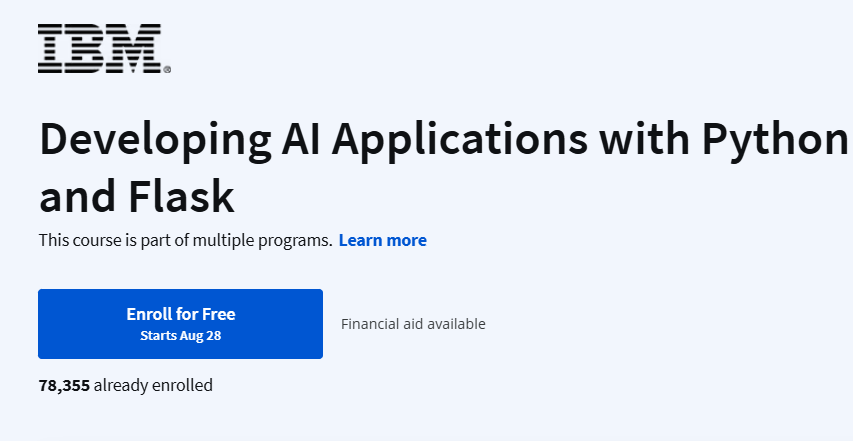
Causal AI



Python Developer March 11, 2025 AI, Machine Learning No comments

Python Developer January 23, 2025 AI, Coursera, Machine Learning No comments



Python Developer January 04, 2025 AI, Coursera, IBM No comments

Python Developer December 17, 2024 AI, web scraping No comments

Python Coding November 20, 2024 AI, Python No comments

Python Coding November 13, 2024 AI, Google No comments

Python Coding October 06, 2024 AI No comments

Python Coding October 06, 2024 AI No comments

Python Coding August 28, 2024 AI, Coursera, Python No comments

Python Coding June 29, 2024 AI, Deep Learning No comments

Python Coding March 07, 2024 AI, Books, Python No comments
%20apps%20with%20Python,%20ChatGPT%20and%20other%20LLMs.jpg)
Python Coding March 07, 2024 AI, data management No comments

Python Coding March 06, 2024 AI, Data Science, IBM No comments

Python Coding February 29, 2024 AI, Books, Coursera, Python No comments

Free Books Python Programming for Beginnershttps://t.co/uzyTwE2B9O
— Python Coding (@clcoding) September 11, 2023
Top 10 Python Data Science book
— Python Coding (@clcoding) July 9, 2023
🧵:
Top 4 free Mathematics course for Data Science ! pic.twitter.com/s5qYPLm2lY
— Python Coding (@clcoding) April 26, 2024
Web Development using Python
— Python Coding (@clcoding) December 2, 2023
🧵: